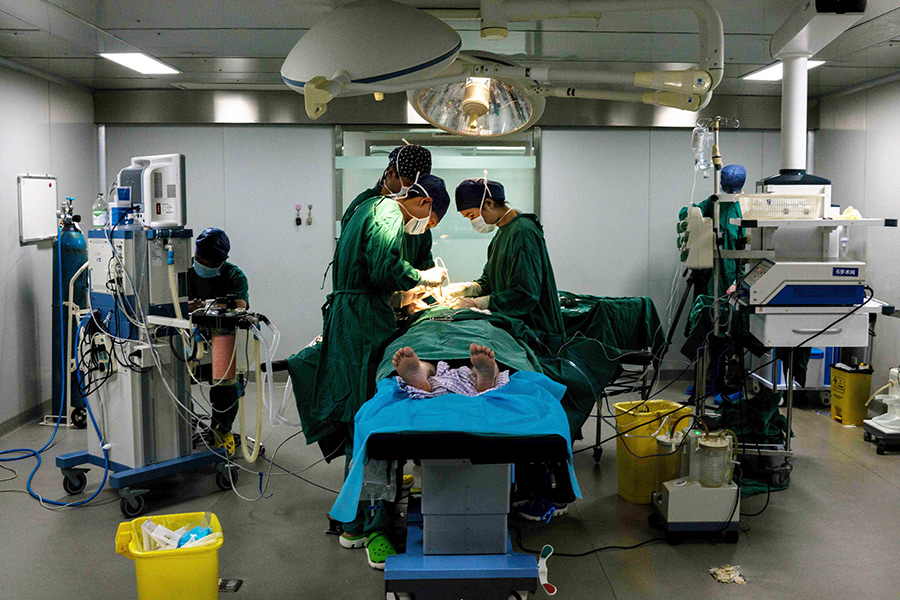Coworking hospital cuts costs for startups


While the sharing economy has changed many aspects of people's lives in China, its latest beneficiary seems to be the medicine aesthetic industry.
Cosmetic medical clinic franchise BeauCare Clinics and online platform So-Young International Inc jointly opened China's first coworking hospital in Beijing in early November, where doctors can book a room to conduct treatment, with supporting staff, medical devices, and medicines provided by the hospital.
The six-story hospital is certificated to conduct class-3 surgeries, with everything ready in consultation rooms, operation rooms, and patient wards. In China, surgeries are categorized in four groups in terms of complexity, and class-3 is the second-highest level.
It employs administrative staff, nurses and anesthetists, but has no plastic surgeons, and does not accept walk-in patients.
Jin Xing, CEO and co-founder of So-Young, said such a model aims to meet the demand from doctors who want to start their own businesses but not have enough funds and resources.
"The shared hospital greatly reduces doctors' cost to start a business, and enables them to focus on patient treatment and surgeries," he said.
Li Bin, president of BeauCare Clinics, said the hospital is aiming to reach a break-even point within three months of operation, and more shared hospitals and clinics will be built if the first one succeeds.
It has already made enough to cover staff salary expenditure in the first month, with commissions charged at an hourly rate, he said.
Du Taichao, an established plastic surgeon with Beijing Huangsi Aesthetical Surgery Hospital, said the hospital had attracted the attention of the medical aesthetic community and his personal experiences there proved the hospital was helpful to doctors seeking safe freelance practice.
"With the market demand booming, many medical aesthetic doctors want to start their own businesses, and those employed by hospitals also want to practice at multiple places in their spare time," Du said.
"The shared hospital provides doctors a safe site to practice, when patients are more likely to choose doctors rather than hospitals for treatment nowadays," he said.
Du also spoke highly of the insurance programs BeauCare Clinics and the Beijing arm of Ping An Property & Casualty Insurance Co jointly developed for medical aesthetic doctors and patients.
China's medical aesthetics market reached 122 billion yuan ($17.5 billion) in 2018, with compound annual growth rate from 2014 hitting 23.6 percent. The market is expected to triple to 360 billion yuan by 2023, according to research firm Frost& Sullivan.
However, data from Ping An Property & Casualty Insurance showed the industry has a high incidence of botched procedures and incidents, with 40,000 cases recorded annually.
Officially unveiled in mid-December, the insurance products are intended for doctors and patients involved in the clinic franchise's operation.
If they prove to be mutually beneficial for both the insurance company and those insured, the products are likely to be open to all doctors and patients in the industry, according to Li.
He also claimed the insurance programs would help reduce the illegal practices and unnecessary treatments that are common in the industry, because they are only open to qualified doctors and do not offer compensation if malpractice is detected.
Products for doctors are categorized by surgical and nonsurgical practices, and the highest compensation is as much as 2.5 million yuan.
For patients, small-scale claims under 5,000 yuan will be approved as soon as they are proposed. Claims ranging between 5,000 yuan and 50,000 yuan will be approved within five days, and for those above 50,000 yuan, the insurance company will pay 50 percent of total compensation in advance within three days of a proposed claim.




































